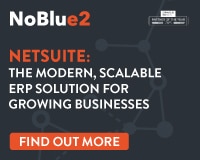This week’s guest blog is from our regular exhibitor, Winman
In the world of enterprise technology, few phrases are more overused, and misunderstood, than “all-in-one ERP.” To some, it suggests a convenient software bundle. To others, it conjures images of inflexible, monolithic systems. For senior decision-makers in UK manufacturing and distribution, understanding what a modern, all-in-one ERP truly offers is essential, not just for operational efficiency, but for long-term strategic advantage.
The Problem with Fragmentation
Many British manufacturers and distributors evolve their systems over time, using one package for accounts, another for stock control, a third for CRM, and spreadsheets to hold everything together. These siloed solutions rarely communicate effectively, leading to duplicated work, manual fixes, and missed opportunities for optimisation.
An all-in-one ERP offers an alternative: a centralised, fully integrated platform where data flows freely between departments. It’s not just about convenience, it’s about gaining control, visibility, and consistency across the entire business.
Real-Time Visibility Isn’t a Luxury: It’s a Lifeline
If you’re relying on yesterday’s reports to make today’s decisions, you’re already behind. Many UK manufacturers are still chasing information: calling the shop floor to check on work- in-progress, waiting for spreadsheets to be emailed over, or second-guessing if the stock count is accurate enough to promise an order. Finance teams might be closing the books
manually while production managers are chasing down supplier lead times from inboxes.
This isn’t just frustrating, it’s risky! A delayed quote, an over-promised delivery, or an unseen stockout can lose you business. When the left hand doesn’t know what the right hand is doing, the result is firefighting: reactive decisions, rushed jobs, and eroding profit margins.
With real-time visibility through an integrated ERP system, leadership teams can:
* See live production statuses and adjust workloads instantly
* Know exactly what’s in stock, what’s on order, and when it’s due
* Make accurate delivery promises based on current capacity
* Track project and job profitability without waiting for month-end
In a competitive, fast-moving market, this isn’t a “nice-to-have.” It’s a lifeline that enables confidence, clarity, and control, day in, day out.
Tailored to Industry Needs
There’s a misconception that an all-in-one system means “one size fits all.” In reality, different industries, whether it’s aerospace, food manufacturing, or medical device distribution, require different capabilities.
A well-designed ERP platform recognises this. Whether you need advanced product configuration, stringent traceability, or project-based costing, the system can be tailored to reflect your industry’s demands and your internal processes. That flexibility is key to ensuring adoption across departments, from the shop floor to the boardroom.
A Shift Away from Separate Accounting Software
One area where many UK businesses still rely on disconnected systems is finance, particularly those using packages like Sage alongside other tools. But separating financials from operational data limits reporting, slows reconciliation, and increases the risk of error.
Integrating accounts into your ERP system provides a single source of truth. No more waiting for month-end to see how projects are performing. Leaders can view cash flow, margin, and budget performance in real-time, enabling faster, more confident decisions.
In fact, research by The Manufacturer found that 65% of UK manufacturers see data integration across finance and operations as a top priority in the next 12 months. It’s not just a nice-to-have, it’s now a competitive necessity.
Empowering People, Not Just Processes
ERP success hinges not only on functionality but also on usability. A clear, role-based interface empowers users to focus on what matters, whether that’s customer service, production planning, or financial oversight.
For business leaders, this means quicker onboarding, fewer support issues, and a stronger return on investment, not just through efficiency, but through collaboration and confidence in decision-making.
Building for the Future
As UK manufacturers scale, diversify, or respond to regulation, their systems need to evolve too. An all-in-one ERP helps future-proof operations, enabling seamless growth without layering on complexity.
Cloud access, mobile functionality, and readiness for emerging technologies like AI and IoT are no longer just for large enterprises. British SMEs can benefit too, provided they have the right foundation in place.
Conclusion:
For senior decision-makers in the UK’s manufacturing and distribution sectors, ERP is no longer just an IT project, it’s a core part of business strategy. Understanding the real value of an all-in-one system is the first step toward smarter, more resilient operations.
Looking for a new ERP solution? Want to update your existing platform? Sign up to our ERP Discovery Day – it’s FREE – and we’ll set you up with one-to-one meetings with the providers that best suit your business. Click here to find out more






